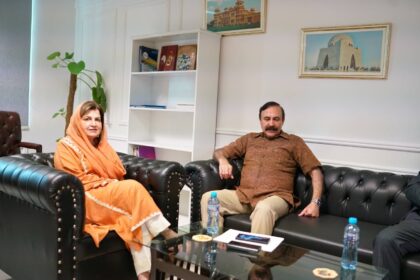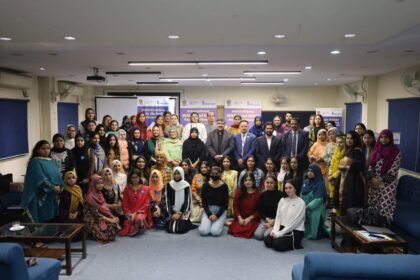In Islamabad, Shanghai Cooperation Organization Secretary General Nurlan Yermekbayev emphasised China Global Governance as a shaping force for multilateral diplomacy during a webinar organised by the Centre for SCO Studies at the Institute of Peace and Diplomatic Studies and the Pakistan SCO Friendship Forum. He described the Tianjin Summit as a defining moment that set the direction for the SCO’s next decade and pointed to 66 proposals tabled by member states, including the landmark decision to establish an SCO Development Bank aimed at supporting sustainable growth, clean energy and scientific innovation across the region.
Yermekbayev said that China Global Governance Initiative, rooted in inclusivity and respect for sovereignty, is contributing to a fairer international order and expanding the SCO’s role as a platform for dialogue and collective action. He linked the organisation’s vision to broader efforts to build a community with a shared future, noting that such initiatives have enhanced trust and practical cooperation among member states.
Dr Farhat Asif, President of the Institute of Peace and Diplomatic Studies, welcomed participants and highlighted the institute’s work in promoting policy dialogue, research and training in public and regional diplomacy. Dr Farhat also introduced the Centre for SCO Studies as Pakistan’s first dedicated platform to advance academic engagement and public diplomacy within the SCO framework, underscoring Islamabad’s interest in deeper regional collaboration.
From Beijing, Yu Xueyong, Deputy Secretary-General of the Good-Neighborliness, Friendship and Cooperation Commission of the SCO, outlined practical achievements under China’s chairmanship up to the Tianjin Summit, noting more than 200 events, 99 cooperation documents and 36 joint projects that have strengthened people-to-people ties and project-based cooperation across SCO states.
Speakers from across the region reinforced the summit’s themes. Dr Andrey K. Krivorotov of the Russian Academy of Science said the Tianjin meeting reaffirmed shared support for multipolarity and closer coordination between Moscow and Beijing on global governance. Dr Anton Sergeevich Dudaranak of Belarus linked SCO and BRICS frameworks to the growing engines of South-South cooperation and regional resilience. Dr Lidiya Parkhomchik of Kazakhstan highlighted rising environmental and transport connectivity priorities under China’s Belt and Road Initiative.
Pakistani academic Dr Sarwat Rauf urged institutional strengthening and regulatory alignment within the SCO system to translate summit decisions into implementation, while Tajik expert Dr Doronshoeva Nekbakht described the organisation as a symbol of the multipolar transition, pointing to new regional centres for information and food security as tangible results. From Uzbekistan, Dr Alimardonov Otabek Kudratovich emphasised the role of public diplomacy and people-to-people engagement in advancing the SCO’s mission of shared development and understanding.
The webinar drew a wide attendance of scholars, diplomats, researchers and media representatives from across the region, reflecting growing interest in how China Global Governance and SCO initiatives can support stability, connectivity and sustainable development in South and Central Asia.











